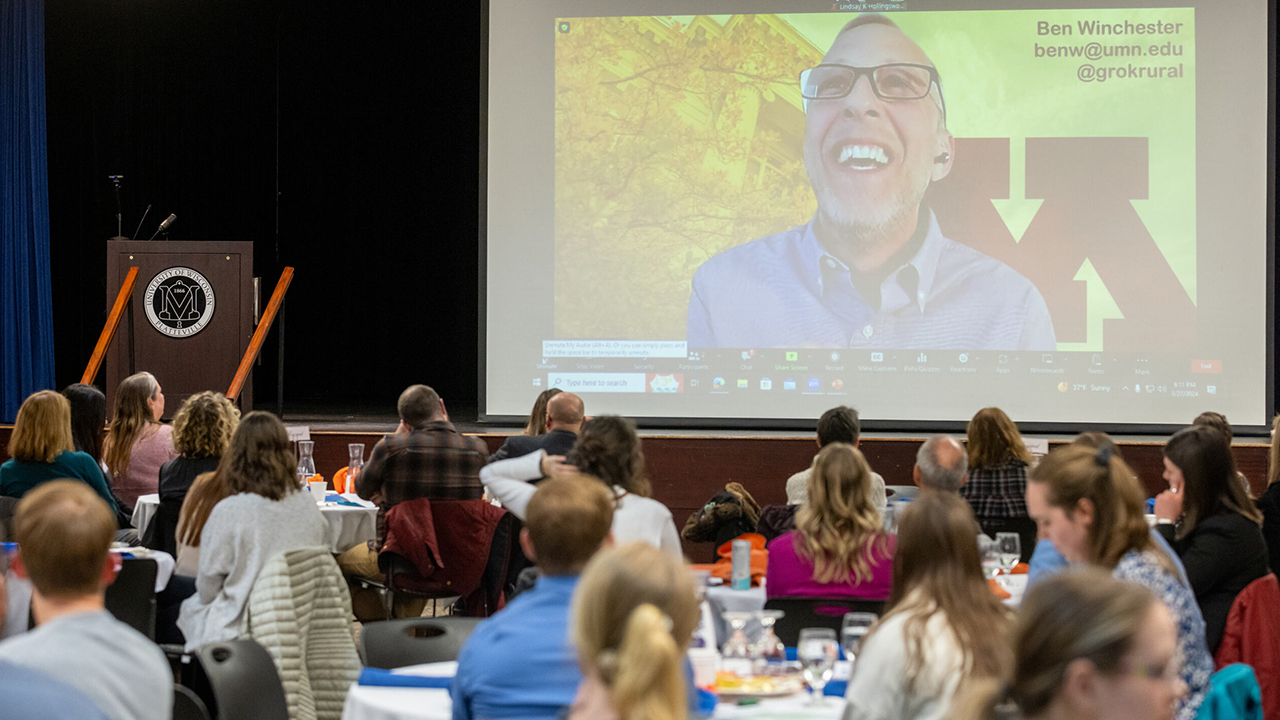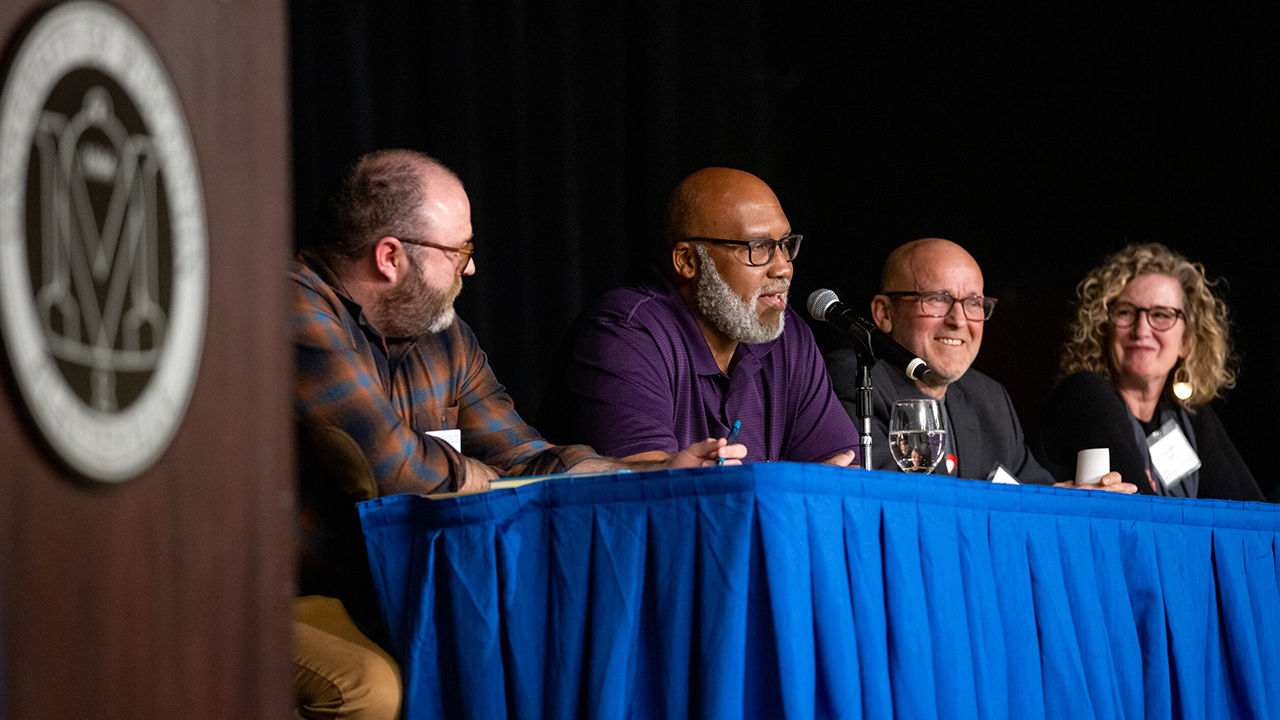


The University of Wisconsin-Platteville School of Education hosted its second annual Rurally Responsive Education Conference, “The Rural Brain Gain and Promise for Rural Communities,” on March 27. Made possible by a grant from the Tommy G. Thompson Center for Public Leadership at UW-Madison, the event included the Rural School Job Fair, which had representatives from eight rural school districts. The conference and job fair welcomed approximately 100 participants – including current faculty, staff and students; regional education partners; alumni; and community members – to explore current issues and needs related to education in rural communities.
This year’s keynote speaker was Ben Winchester, a trained rural sociologist who works for the University of Minnesota Extension. Winchester, who received the International Rural Renewal Research Prize in 2021, conducts applied research on economic, social and demographic topics surrounding the theme of “rewriting the rural narrative.” He was a founding employee at the Center for Small Towns, an outreach program at the University of Minnesota, Morris, which specializes in community development, demographic analysis, data visualization and moving communities away from anecdata.
The conference also featured a Proud Rural Teacher panel, featuring Dr. Jennifer Collins, former director of the School of Education at UW-Platteville; Rick Erickson, a teacher in the Bayfield School District; and Dr. Frank King, associate professor in ethnic studies at UW-Platteville.
“The School of Education is committed to the education and preparation of future teachers,” said Dr. Lindsay Hollingsworth, professor in the School of Education at UW-Platteville. “We are thrilled to offer rich professional development opportunities for our students and area school partners. The conference provided university students, school district leaders and community members an opportunity to celebrate rural education together.”
The UW-Platteville School of Education has been training educators for more than 150 years, with its roots dating back to the state’s first Normal School, established in 1866. The School of Education focuses on rural education, supported by the fact that 80% of its graduates go on to teach in rural communities. Students learn through a place-based framework, which emphasizes using students’ own communities – including the history, culture, environment and more – as the primary resource for learning.